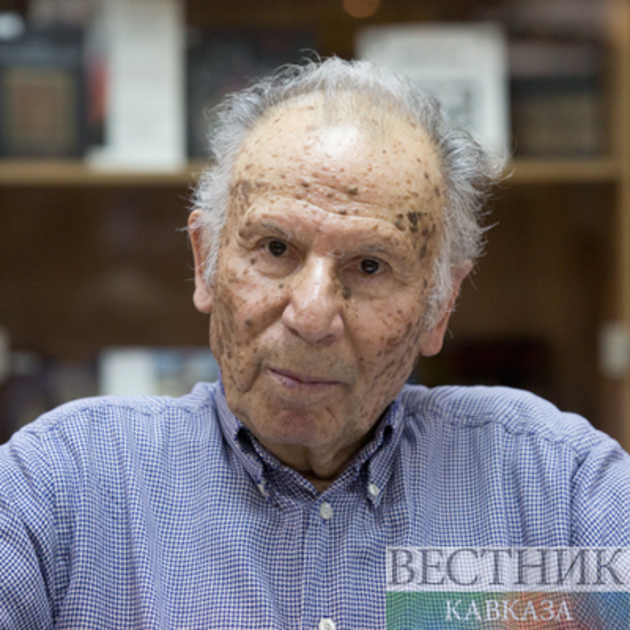2023 will be announced in Russia as the Year of the poet and thinker Rasul Gamzatov. Dagestan will become the center for celebrating its centenary, but events will be held throughout the country. Rasul Gamzatov was born on September 8, 1923 in the village of Tsada in the Khunzakh region of Dagestan. Dozens of his poetic, prose and journalistic works were published in the Avar and Russian languages and in many languages of the world. After graduating from the M. Gorky Moscow Literary Institute in 1950, Gamzatov was appointed chairman of the board of the Writers' Union of Dagestan, where he worked until his death in November 2003.
As part of the cycle dedicated to the 100th anniversary of Gamzatov, "Vestnik Kavkaza" appeals to famous creative people who knew the poet well, with a request to share their memories. We continue to publish the memoirs about Gamzatov of the writer, literary critic, translator Chingiz Huseynov.
- Chingiz Hasanovich, we can say that the Avar reader of Gamzatov was more fortunate than the Russian - if the original is brighter than the translation?
- To our great happiness, Gamzatov was translated into Russian by outstanding poets: Naum Grebnev, Yakov Kozlovsky, Elena Nikolaevskaya and others. Here we must remember a very interesting feature of Avar poetry: there is no rhyme in it. And the rhymed poems among the Avars are perceived as a joke, fun, game, competition. Poetry is based not only on rhyme. The brightest examples of true non-rhymed world poetry are known. There are other components that make a text poetry. As for the Russian translations of Rasul Gamzatov's poems, the rhyme - and the translators found very successful rhymes! - adorned his poetry, because his works were already becoming the property of the Russian language and culture. In this case, the translation did not damage the original.
I observed the same in relation to another outstanding national poet Kaysyn Kuliyev, a participant in the Great Patriotic War, who was repressed in 1944 along with his Balkar people. He was personally offered as an exception to stay in his homeland, but he did not agree and also went into exile, into exile, and lived in Kyrgyzstan. I read his poems in Balkar, because this language belongs to the Turkic languages that I know. And I read translations of the same poems into Russian. A very rich original, a good translation, but it was still impossible to compare them. I am probably the only one who, as a literary critic, carefully studied this topic - the translation of poetry from oriental languages into Russian.
- Do you remember your last meeting with Rasul Gamzatov?
- He was already seriously ill. But he still came to celebrate his 80th birthday. He looked unimportant, but at the same time remained a bright orator, which he always was. At the same time, he did not speak Russian very well. However, oratory overshadowed linguistic flaws. Here I must recall one of his brightest works - the book in prose "My Dagestan". This is a huge epic legend, lyrical prose in style, and a great Dagestan epic in content.
- You once said that Rasul Gamzatov belongs to all of Dagestan, not only to the Avar people.
- He called Dagestan his homeland. Most of the regions on the globe bear the names of the ethnic groups living in them. In the Caucasus, these are Georgia, Ossetia, Chechnya and others. Dagestan is one of the few regions that has a geographic rather than ethnic name - "Mountain Country". Dagestan is multilingual. There is even a parable about how God flew over the earth and distributed languages to people. When he sat down to rest, he saw that there were still many languages left in the bag, so he poured them into one place - this is how Dagestan appeared. I wrote the novel "Fatal Fatali" about the 19th century (a novel about the life of Mirza Fatali Akhundov - an Azerbaijani writer-educator, poet, critic and philosopher - ed.), Then there were twice as many languages in Dagestan than in the 20th century ... Languages disappeared, assimilated. Even now there are unwritten languages, there are languages of only one aul.






